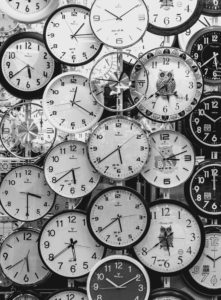There has been a lot of discussion over the years about the inequality that exists in the world. Various social programs have been started by governments, private foundations and charities to help “even the playing field.” While the successes or failures of these programs is not the point of this discussion, I applaud their efforts, and will continue to support the efforts of my favorite charities.
In spite of the world’s combined humanitarian efforts, I believe differences will always exist among people, be they economic, physical, or mental. However, there is one great equalizer that we all share alike: time. With the exceptions of the very first day or the very last day of life, everyone has an equal amount of time each day.
Time is one of our most valuable resources. And like all resources, time has multiple uses. And the most important Law of Resources is: Resources used for one purpose cannot at the same time be used for other purposes. In other words use of resources for one purpose means giving up the use of those same resources for other purposes. (Economists refer to this trade-off as the opportunity cost of choosing one use over another.) The same applies to time: (perceived ability to multitask aside) if one chooses to spend five hours fishing then one has to give up five hours of doing something else.
What do people really mean, then, when they say that someone has more time than they do?


